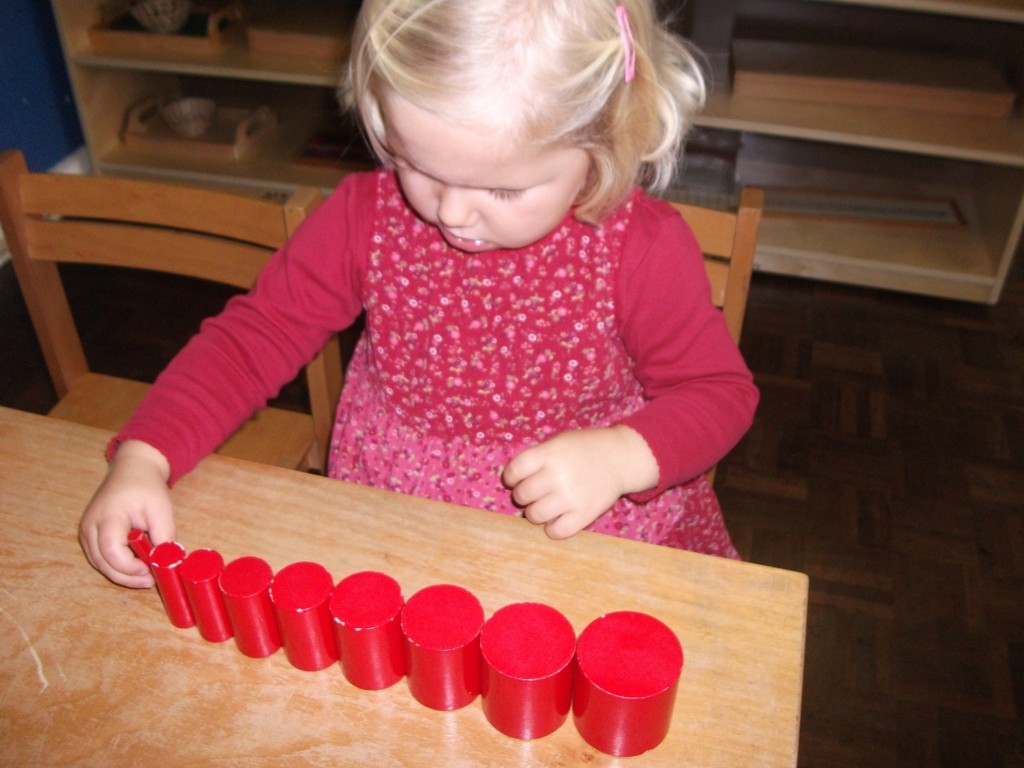The Montessori Method
 A good Montessori classroom emphasises the following:
A good Montessori classroom emphasises the following:
- The Importance of the Early Years – when young children possess an ‘absorbent mind’ and learn far more easily and effectively.
- Freedom – within a structured environment. The child is allowed to move around freely talking to other children and working with the equipment which s/he chooses after demonstration of its use by the teacher. However, s/he is not allowed to abuse the equipment or disturb other children, thereby limiting their freedom to work.
- Independence – the child’s natural need for independence is encouraged, and whenever possible s/he is allowed to do things by him/herself.
- Self-discipline – this is gradually developed through freedom of movement and freedom of choice.
- Concentration – children are encouraged to concentrate by being introduced to materials at the right developmental level for them, and to complete each activity.
- Reality and Nature – the value of growing up in close contact with nature. Children need real objects rather than imitation playthings which do not work.
- Beauty – the environment should be aesthetically pleasing, simple and clean.
- Social awareness – this is aided by placing children in ‘family’ or mixed age groups.
- Order – both materials and the environment promote order. Children usually feel comfortable in an ordered classroom where they understand the routine.
- Respect – children have to be respected as being different from adults and as individuals who differ from each other.
- Sensitive periods – children have times in their lives when they are particularly attuned to certain types of learning.
- Co-operation with parents – schools are part of the local community; children learn most effectively when a partnership exists between the child, parent and teacher.
- Montessori materials – these are a key element in the environment, as the child learns through the materials, many of which are self correcting, rather than directly through the teacher.
The role of the teacher in the Montessori classroom is different from that of the traditional teacher. The teacher first observes the child to ascertain his/her interests and developmental level, then directs the child towards appropriate activities so that s/he learns for him/herself through the environment and specially designed educational materials.
For more information see the downloadable prospectus and the links and references on the ‘Resources’ page.